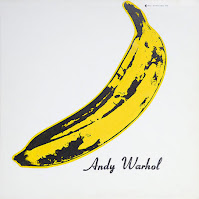Perhaps because of the association of whistling with certain morbid superstitions, movies have used whistling as means to establish an ominous mood or atmosphere. Each of the films in Columbia's 8-film Whistler series (1944-1948) begins with the slightly sinister narrator whistling an eerie tune, soon to introduce himself as The Whistler: “I am the Whistler and I know many things, for I walk by night. I know many strange tales hidden in the hearts of men and women who have stepped into the shadows. Yes, I know the nameless terrors of which they dare not speak.” A few years prior to the debut of the Whistler series, in Fritz Lang’s M (1931), throughout the film the child murderer, Hans Beckert, identifies himself off-screen by whistling Grieg’s “In the Hall of the Mountain King.” An inspired cinematic use of whistling is Bernard Herrmann’s haunting score for the psycho-thriller Twisted Nerve (1968), widely known as the “Kill Bill whistle song,” having been appropriated by Quentin Tarantino for a sequence in Kill Bill Vol. I (2003). Tarantino follows Fritz Lang’s lead in having the whistler introduced off-screen prior to the character’s actual appearance. The “whistle song” was again used by Tarantino as a phone’s ringtone in Death Proof (2007).
I find Herrmann’s melodic theme for Twisted Nerve powerful and haunting because, to use a linguistic analogy, it is like an antonym: it is both tranquil and foreboding at the same time. It is the sonic equivalent of M’s Hans Beckert, whose jolly smile and jaunty whistle cloaks his murderous intent. I hear Twisted Nerve’s whistle in many songs that use whistling but are musically much different. I hear it in Roy Orbison’s “Here Comes the Rain, Baby,” the beginning of Billy Joel’s “The Stranger” (1977), the whistling that closes Peter Gabriel's masterful “Intruder,” Roxy Music's cover of “Jealous Guy,” and Scorpions’ “Wind of Change," among others.
Here are a few songs to listen to and think about in the way they use whistling:
A Fistful of Dollars (Main Title) – Ennio Morricone (1964) (Alessandro Alessandroni, whistler)
Here Comes The Rain, Baby – Roy Orbison (1967) (Mickey Newbury)
One Of Us Cannot Be Wrong – Leonard Cohen (1967) (Features Cohen using a hand whistle)
Twisted Nerve (Main Title) – Bernard Herrmann (1968) (Gareth Williams, whistler)
Always Look On The Bright Side Of Life – Monty Python’s Life of Brian (1979) (Eric Idle)
Intruder – Peter Gabriel (1980)
Generals and Majors – XTC (1980)
Roxy Music – Jealous Guy (1981) (John Lennon tribute)
Patience – Guns N' Roses (1988)
Wind of Change – Scorpions (1990)
The Big Bang – Rock Mafia featuring Miley Cyrus (Video, 2010)




